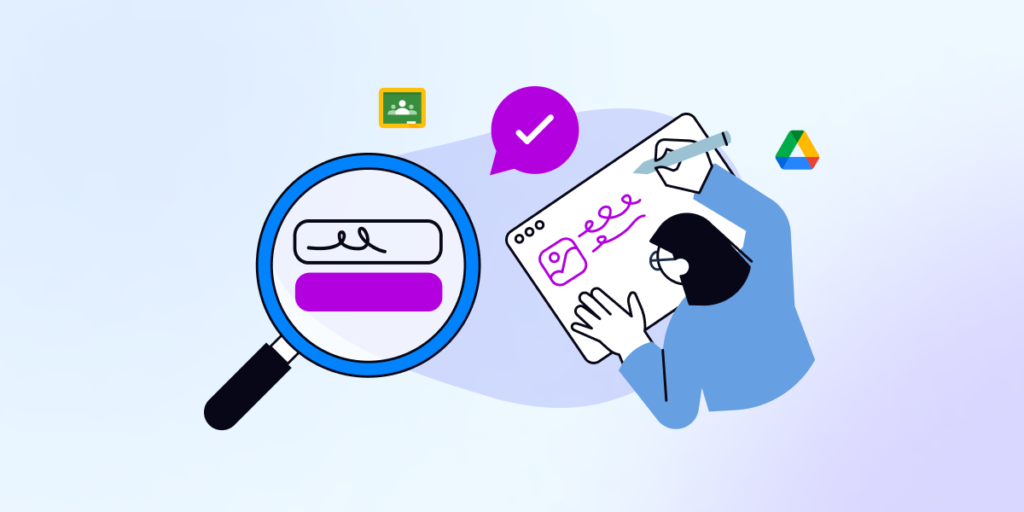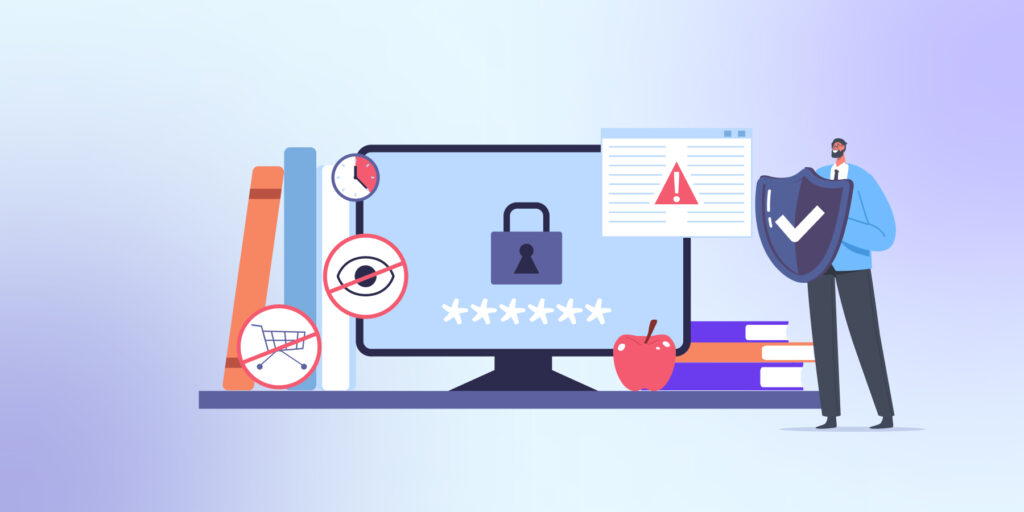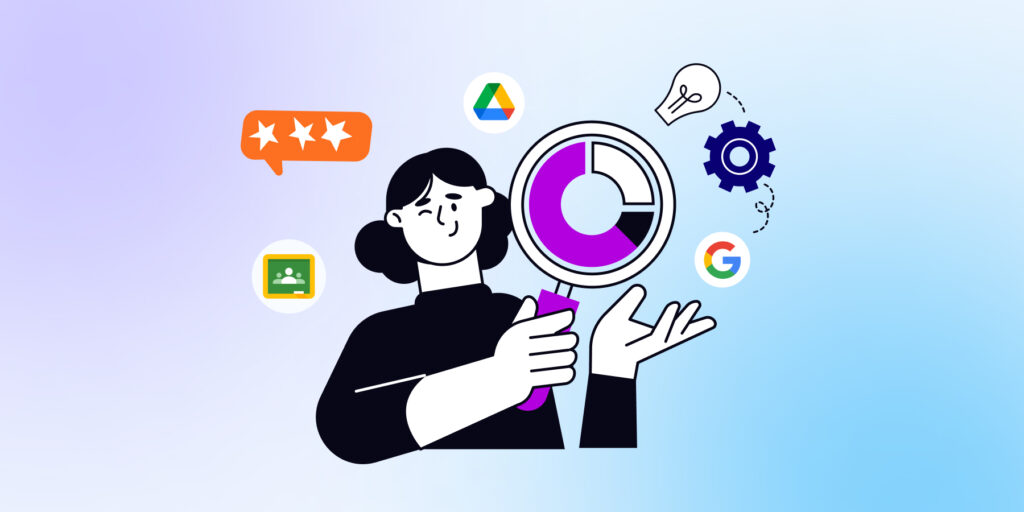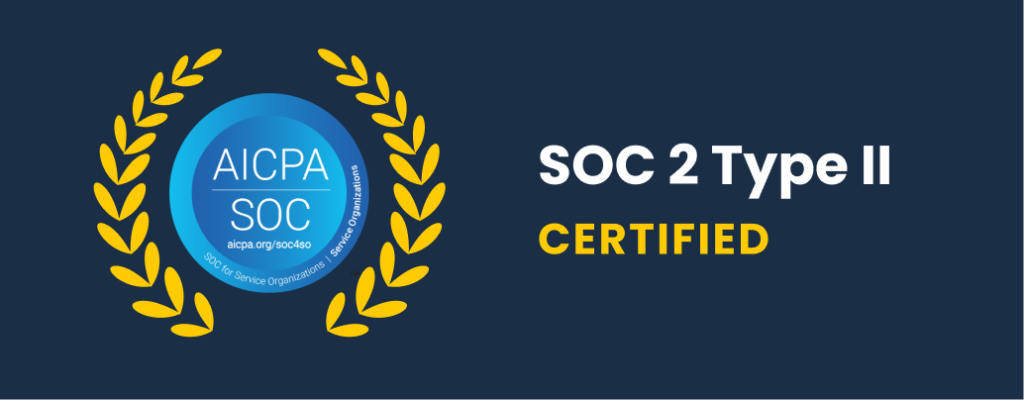Academic integrity is a cornerstone of educational institutions, shaping the behavior and ethics that students carry into their professional lives.
Maintaining academic integrity has become increasingly complex as the digital age introduces new tools and challenges. Artificial intelligence (AI) technologies are among these new variables, influencing both positively and negatively the efforts to uphold academic honesty.
The Impact of AI in Education
According to a study, the artificial intelligence (AI) market is on a trajectory for remarkable growth. Currently valued at nearly 100 billion U.S. dollars, it is expected to grow twentyfold by 2030, reaching nearly two trillion U.S. dollars.
But what does that mean for education?
While AI brings in smart classrooms, personalized learning, and efficient administrative procedures, it also presents challenges like content plagiarism and unauthorized assignment aid, especially with tools like Chat GPT readily available.
Challenges to Academic Integrity in the Age of Google Classroom
Maintaining academic integrity has always been a critical concern for educators, but the challenges have multiplied in a digital environment facilitated by platforms like Google Workspace for Education.
The ease of access to information and tools can inadvertently encourage behaviors that compromise academic integrity.
Let’s learn some of the issues that Google Admins should be especially aware of.
Unauthorized Collaboration
Google Workspace promotes collaboration by allowing students to work together in real-time on Google Docs, Sheets, and Slides. While beneficial for group projects, this feature can be misused for unauthorized collaboration on individual assignments. Google Admins need to be vigilant about how these collaboration features are being utilized to ensure they are in line with academic policies.
Open-Book Cheating
Google Classroom enables educators to distribute materials and assignments easily, but it also simplifies the process of students searching the web for answers. This creates a new form of “open-book” cheating, where students can quickly find and submit answers without truly engaging with the material.
The Plagiarism Epidemic
The ease of “copy-pasting” from the web directly into Google Docs is another issue that Google Admins need to monitor closely. Plagiarism undermines the educational ethos. It can be especially difficult to manage in a Google Classroom setting, where assignments are often submitted electronically.
AI-Generated Submissions
AI technologies, like Chat GPT, can generate text that closely mimics human-generated content. Students may use these technologies to complete assignments, essentially outsourcing their thinking process to a machine.
For Google Admins, the challenge lies in differentiating between genuine student work and AI-generated content when assignments are submitted via Google Classroom.
Data Security and Privacy
Google Workspace for Education offers robust security features, but academic integrity also entails ensuring the secure handling of sensitive educational data.
Google Admins should employ best practices for data governance to prevent unauthorized access to assignment materials, exam questions, and grading data.
Off-Site Examinations
Remote learning has necessitated off-site examinations, usually supervised via Google Classroom. This setting presents its own set of challenges, such as preventing students from accessing restricted materials during an exam. Google Admins need to explore tools and features that can limit browser functionality during critical evaluation periods.
AI-Based Solutions to Preserve Academic Integrity
In response to these challenges, AI-based solutions are being developed to safeguard academic integrity. One such tool aimed at preserving the sanctity of student assignments is Taskmaster, designed to monitor remote student work closely.
While it’s so many solutions out there, here are a few features that educators may find helpful:
1. Detect AI-Created Content
This tool compares the text submitted in assignments with AI-generated data to assess its likely authenticity. It provides a percentage score that flags potential machine-generated content.
2. Block or Detect Copy-Paste Action
Teachers can restrict students from copying and pasting into specific assignment documents to ensure content originality.
3. Check Assignment Integrity
Active ID algorithms capture unique typing patterns to determine whether a student is the actual author of the submitted work.
4. Monitor Homework Progress
Real-time tracking capabilities allow teachers to monitor students’ status closely. The tool provides detailed statistics on typing activity, duration, deletions, and more.
5. Stay Notified on Assignments
Automatic notifications keep students and teachers in the loop, ensuring a smooth assignment workflow.
Conclusion
While AI introduces its own set of challenges to academic integrity, it also provides innovative solutions to tackle these issues head-on. AI-based tools like Taskmaster offer robust features to help educators ensure the originality and honesty of student work.
By leveraging the right technologies, educational institutions can both adapt to the digital age and uphold the timeless values of academic integrity.
Audit. Manage. Protect.
Discover how Management & Security Services can help you with deeper insight and on-call, personalized assistance.










